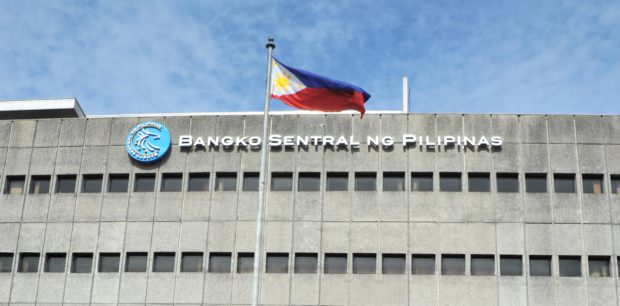MANILA, Philippines—The Philippine central bank is continuing its crackdown on money changers violating anti-money laundering regulations with another one being stripped by the Monetary Board of its license recently.
In a statement, the Bangko Sentral ng Pilipinas (BSP) said its policy-making body cancelled the certificate of registration as a foreign exchange dealer or money changer of a firm called Nashima Money Changer.
Without specifying violations, the BSP said this money changer was found to be in breach of central bank rules governing the operation of non-bank financial institutions, especially those concerning regulations set by the Anti-Money Laundering Act.
This is the fifth money changer the BSP has closed down this month, following stricter enforcement of rules that began in 2020.
Three weeks ago, the BSP closed down one money changer in Laoag and three others operating in the same locale in Mandaluyong City and barred them permanently from conducting any kind of financial service.
These firms are LM’s Money Changer or L.M.’s Money Changing Services at the Laoag City Public Market in Ilocos Norte owned by Monique Diana Castro, Adahn Money Changer owned by Tandiko Ajibon Boyo, Mudzmar Money Changing Services owned by Farida Adjula, and Zhenrihada Money Changing Services owned by Tadzmahal Andag.
The central bank explained that these firms were found operating without BSP registration in violation of the agency’s rules and regulations governing operations. They were also in violation of reporting obligations of non-bank entities engaged in remittance and money changing or foreign exchange dealing.
Late in 2020, the Anti-Money Laundering Council — which is chaired by BSP Governor Benjamin Diokno — urged financial industry stakeholders to remain cautious and vigilant amid rising evidence that criminal elements have become more active due to the pandemic.
Diokno said proper know-your-customer and customer due-diligence procedures must always be conducted while clients’ risk ratings must be periodically assessed.
According to the dirty money watchdog, suspicious transaction report submissions for the period increased by 57 percent compared with the same months in 2019.
Of the total number of suspicious transactions, only 29 percent, however, occurred between the start of the lockdown in March until end of August 2020. Red flag submissions of electronic money issuers soared by 688 percent while those of pawnshops and money service businesses climbed by 51 percent.
TSB
